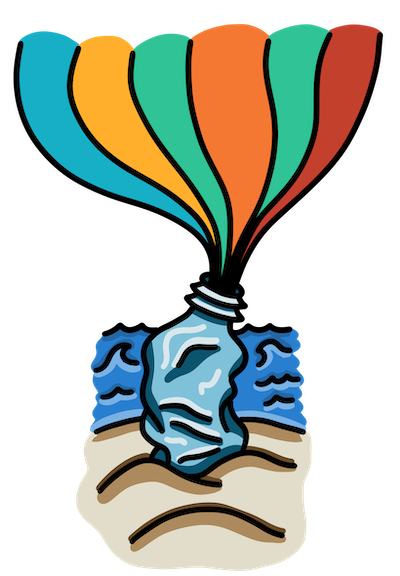Lessons
The following sequence of lessons and activities trace the journey of plastics from our hands to the Channel Islands. It looks at each piece of trash as an individual with a story, helping students to look past the seemingly anonymous waste and understand the people and processes that led to its final resting place. These elements can be completed as a 5E sequence, or as separate activities.
Engage
Reading: “Paradise Tossed”
A middle school student reflects on the experience of a Santa Rosa Island beach cleanup.
Island Visions, pages 340-341
Discussion Guide
Suggested Duration: 30 minutes
Explain
Class Discussion: “Journey of a Piece of Trash”
Break down how plastics get into our oceans, and the role that we all play in this.
Discussion Guide
Suggested Duration: 30 minutes
Elaborate
Activity: All Trash Has a Story
A middle school student reflects on the experience of a Santa Rosa Island beach cleanup.
Island Visions, pages 340-341
Activity Guide
Suggested Duration: 2 hours, 30 minutes (plus travel)
Evaluate
Class Discussion: Science and Story
Students will present and discuss the stories of the pieces of trash that they found in the cleanup, bringing together the lessons learned throughout this module.
Discussion Guide
Suggested Duration: 50 minutes


